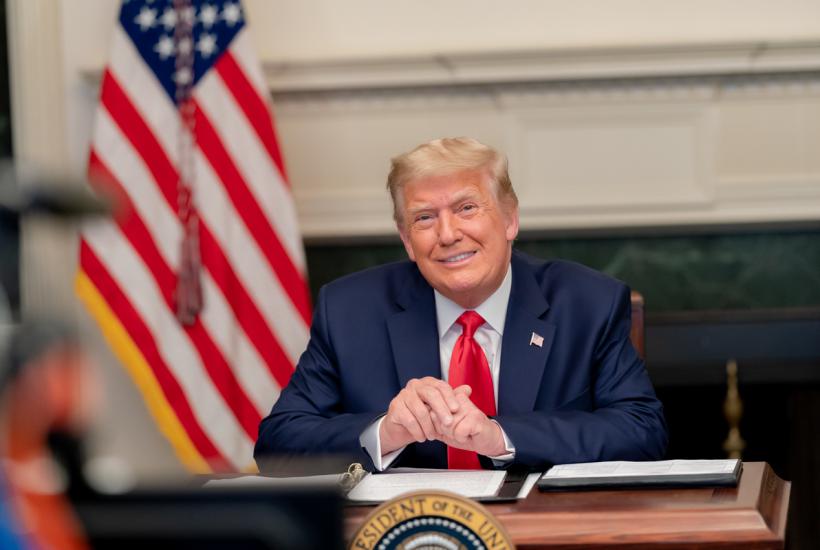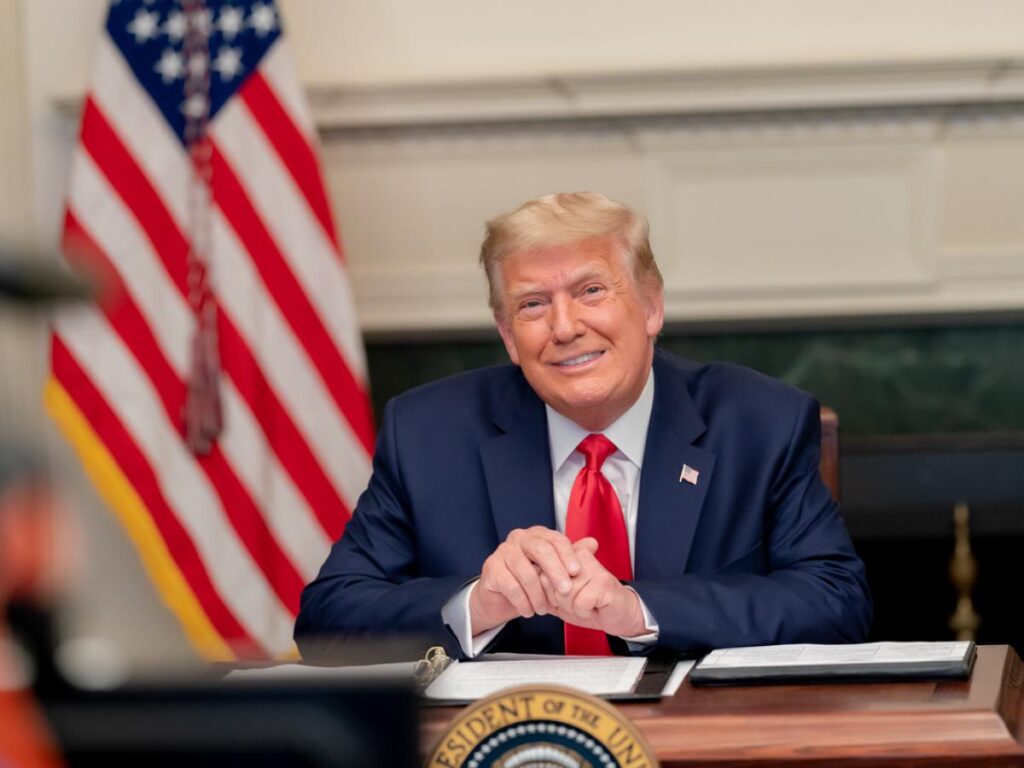Trump warns Russia of big problems for rejecting Ukraine peace deal
Russia will face severe repercussions if it refuses to agree to a peace deal regarding the conflict in Ukraine, U.S. President Donald Trump stated.

Photo: commons.wikimedia.org by The White House from Washington, DC, https://creativecommons.org/public-domain/pdm/
Donald Trump
“He should make a deal … I think Russia’s going to be in big trouble,” Donald Trump said claiming he was preparing to meet Putin. “He can’t be thrilled, he’s not doing so well. I mean, he’s grinding it out, but most people thought that war would have been over in about one week, and now you’re into three years, right? … [Ukrainian president] Zelensky wants to make a deal,” he added after his inauguration on Monday, Jan. 20, 2025.
He expressed his desire to meet with Russian President Vladimir Putin as soon as possible. The primary focus of their discussion, Trump indicated, would be a peaceful resolution to the conflict in Ukraine. He also noted that initial steps toward such an agreement are already being taken.
Trump’s Call for Dialogue with Putin
This is not the first time Trump has expressed his intention to engage with the Russian president. He has previously voiced a desire to schedule a call with Putin in the coming days to personally propose a meeting to discuss terms for peace in Ukraine.
According to CNN, Trump is eager to meet with Putin as soon as formal negotiations begin. The U.S. President suggested that a conversation with his Russian counterpart could happen very soon.
However, Trump did not provide specifics on when or where such a meeting might take place. He did, however, emphasize that progress toward an agreement is already underway.
“We’ll try to do this as quickly as possible. You know, the war between Ukraine and Russia should never have started in the first place,” Trump remarked.
Moscow’s Response
The Kremlin congratulated the newly re-elected U.S. President on the beginning of his second term, expressing readiness to engage in dialogue with Trump. Russian officials noted that they perceive signals from the American leader suggesting the necessity of restoring bilateral relations.
Ahead of Trump’s inauguration, his administration began formulating a new sanctions strategy against Russia. This strategy reportedly involves two primary approaches aimed at expediting a peace deal with Ukraine and bringing an end to hostilities as soon as possible.
Two Paths for U.S. Policy Toward Russia
The first approach, described by Trump’s team as a “goodwill gesture,” involves easing sanctions on Russian oil companies. This could include issuing general licenses or raising the price cap on Russian oil exports.
The second, more aggressive, approach focuses on tightening restrictions and increasing pressure on Russia. This strategy is seen as a means to push Moscow into signing a peace agreement with Ukraine “in the coming months.”
Both strategies underscore the urgency with which the U.S. administration views the need to resolve the conflict. While Trump has expressed optimism about the potential for dialogue with Putin, the road to peace remains uncertain, with both nations weighing their next moves carefully.
The evolving situation highlights the delicate balance of diplomacy, sanctions, and negotiations as the U.S. seeks to address one of the most critical geopolitical crises of the era.
Details
There have been several rounds of peace talks to halt the Russian invasion of Ukraine (2022–present) and end the Russo-Ukrainian War (2014–present). The first meeting was held four days after the start of the invasion, on 28 February 2022, in Belarus. It concluded without result. A second and third round of talks took place on 3 and 7 March 2022 on the Belarus–Ukraine border. A fourth and fifth round of talks were held on 10 and 14 March in Antalya, Turkey. The negotiations in Turkey produced the Istanbul Communiqué. It proposed that Ukraine end its plans to eventually join NATO, have limits placed on its military, and would have obliged Western countries to help Ukraine in case of aggression against it. The talks almost reached agreement, with both sides considering “far-reaching concessions”, but stopped in May 2022, due to several factors, including the Bucha massacre. Following the 2022 Ukrainian eastern counteroffensive, Russia renewed calls for peace talks, but Russian government sources suggested that Putin is not truly committed to peace and was simply stalling for time while its forces trained and replenished for a future advance.
>



